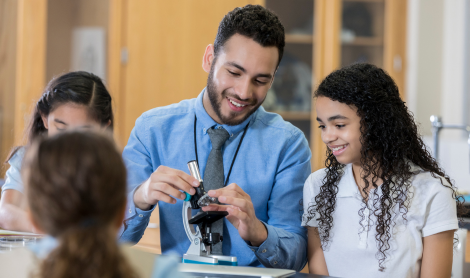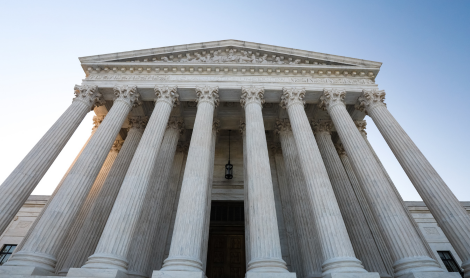This blog post was written by Campbell Mims and Wendy Ward from the South Carolina Public Charter School District.
The pandemic has changed everything in the lives of South Carolina Public Charter School District educators and students.
Our mission—to improve learning and increase learning opportunities—suddenly had to incorporate all the challenges of hybrid, face-to-face, and virtual instruction. These challenges brought to light that now, more than ever, we must advocate for the whole child, not just in the classroom, but also in the home and in the community.
Focusing attention on our students’ and teachers’ social-emotional learning (SEL) is more critical than ever.
Our district’s push to prioritize whole child education turns out to be the perfect fit for today’s pandemic times. If you walked into one of our schools on any given day, you may see:
- Classroom community circles connecting students and giving them voice and agency
- A classroom teacher delivering a SEL lesson, using CASEL-aligned curriculum (CASEL stands for the Collaborative for Academic, Social, and Emotional Learning)
- Tiered intervention, in the form of a small group working with a counselor; or
- A student having an individual conference regarding their behavior for the day
This is the result of visionary educators and administrators who are willing to try new approaches.
Our schools who regularly implement SEL can expect to reap the benefits of improved academic performance, improved student attitudes, greater motivation to learn, decreased disciplinary referrals, improved school attendance, and reduced anxiety, stress, and depression levels, particularly when coupled with regular mindfulness activities.
Kerri Camp is one administrator who understands that it takes a “village” to educate a child. “By utilizing SEL best practices and working with the community, we have seen a shift in how our staff listens instead of talking to students, to understand how they are really feeling,” said the Spartanburg Preparatory School assistant principal.
Our district understands that for children to perform at their best, the child’s “village” must also participate. Adults can take advantage of the tools and resources to be ready with the knowledge to handle difficult situations in a scholar’s life. Students and adults need to cultivate effectiveness in five core self-competencies (as defined by CASEL) in the areas of:
- Self-awareness
- Self-management
- Social awareness
- Relationship skills
- Responsible decision-making
Schools that focus on strengthening adult SEL competencies will enjoy improved staff retention, better attendance, and improved engagement with students, families, and the community, as well as reduced anxiety and stress.
At Pee Dee Math, Science and Technology Academy, school leaders are beginning to see the results of this buy–in by parents, staff, and the wider community. “The growth in understanding has been extraordinary,” said Tre Gammage, dean of students. “We are seeing teachers and parents become more aware of their emotions, which correlates to being able to apply this awareness in the lives of kids in the classroom and at home.”
We plan to continue building this capacity for supporting the whole child organically rather than through mandates. As a public charter school district, we do not inform schools that they must deliver SEL in a particular way. We do not choose a particular program, how many hours per week students should receive SEL instruction, or how to involve families and communities. We appreciate the autonomy of each of our 33 schools. We work to support them by providing information about best practices, state department of education updates, and legislative updates.
As one educator notes, it is easy to track when things are going well for a child, but it becomes more difficult when things are going poorly. Now more than ever before, we see the need for SEL resources in K-12 education. Public charter schools in South Carolina are leading the efforts to shift how schools develop scholars and leaders in this new era of whole child advocacy.


